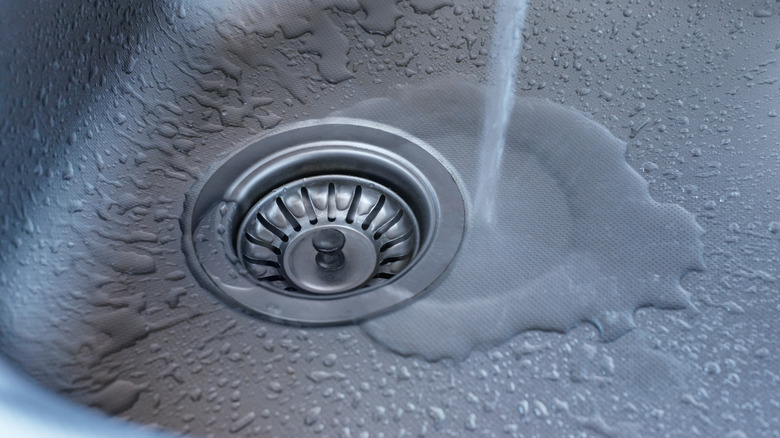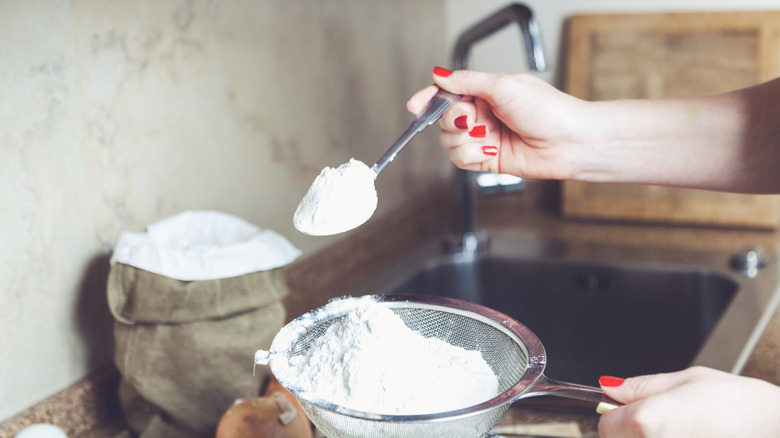The Kitchen Staple You Need To Keep Far Away From The Drain
When you have excess flour, whether it's leftover on the counter after kneading, an overestimate of a measurement, or a bowl used during a double-dredged fried chicken sandwich, do not, and we cannot emphasize this enough — do not — dump it down the drain. Not to be dramatic, but even a fairly small amount of flour can lead to a high plumbing bill down the road. And if you're thinking that using the garbage disposal side of the sink makes a difference, think again.
Regardless of whether you're using a regular drain or have a disposal — which can actually be a worse option for this situation – flour is an ingredient that needs to go in the garbage and not be carried off into the unknown via your sink. This is because it won't get carried away at all.
I know what you're thinking (because I thought it, too, back when I didn't know better), that the water will dissolve the flour as it washes it away down the drain. Except it doesn't; in fact, it does the opposite.
What happens to flour in the drain?
Instead of dissolving into the water and disappearing, the flour's thickening properties kick in — and will cause it to form a sticky coating on your pipes. Flour can be used to make glue, after all, so too much in your drain will cause a plumbing disaster. While just a cup of the powdery substance can cause a lump of dough to clog your pipe or jam your garbage disposal, a little can also cause future damage.
Even if there isn't a full blockage, a coating of this sticky stuff on your pipes will attract and attach more rubbish as it travels by. It's the recipe for a residue you don't want to have to pay to get rid of, so consider an ounce of prevention being well worth the pound of cure.
It's also worth noting that flour isn't the only thing you shouldn't be trying to flush away. There are several common household and kitchen pantry items you should avoid dumping down the sink – like oils, seeds, and coffee grounds, to name a few.

